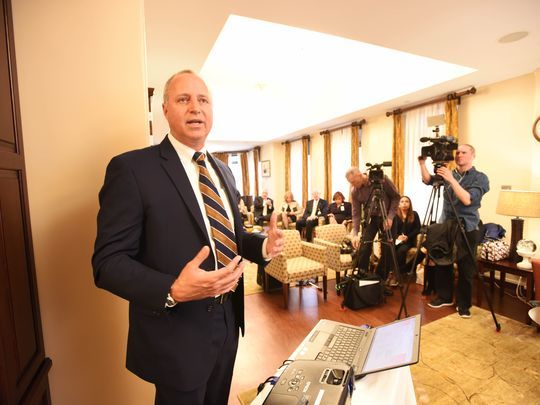By
[P]atients can now use their smartphones to share their wishes for end of life care — whether or not they want to be intubated or have CPR, for example — with ambulance crews, loved ones, emergency-room doctors and hospitals.
No more fumbling for a piece of paper, signed by the doctor, to show health-care providers when a terminally ill loved one is rushed to the hospital. Patients in New Jersey can have their wishes become part of their electronic medical record and shared on mobile devices.
The online version of the “Practitioner Orders for Life-Sustaining Treatment” was launched Friday, almost five years after New Jersey authorized the use of a paper form for frail and severely ill patients. The online version will be part of a registry maintained by the New Jersey Hospital Association, with strict safeguards for patient privacy.
“We’re moving beyond having a green paper hanging on the refrigerator,” said Health Commissioner Cathleen D. Bennett, speaking of the paper version of the POLST forms. When patients articulate their preferences, it helps them to live on their own terms at the end of life, she said.
They can also express their goals for care, ranging from a full attack on their disease to palliative or comfort care. The form is signed by both the patient and the doctor or advanced-practice nurse, and is considered a medical order. Emergency personnel can follow it whenever the patient can’t speak for himself.

“Through this tool, more health-care providers will have immediate access to critical information they need to treat the patient according to the patient’s health-care preference,” Bennett said. “Patients with smart phones also will be able to share their electronic POLST form with a new physician, specialist or emergency-room doctor.”
In New Jersey, about 11,000 patients a year created POLST forms at each of the hospitals that participated in a study of it, said Joseph A. Carr, chief information officer for the New Jersey Hospital Association, who demonstrated the electronic version.
At a ceremony at the Villa Marie Claire Hospice in Saddle River, Bennett and Betsy Ryan, president of the association, signed an agreement for the association to become the online repository for the POLST forms. The villa, a former convent, is an inpatient hospice for 20 patients that is part of Holy Name Medical Center.
Talking about the end-of-life is one of the most important conversations a family can have, said Michael Maron, president of the medical center. The hospice’s decade of work has taught him that patients feel comforted and empowered when they are able to communicate their choices clearly and effectively, and they are understood by caregivers and loved ones.
The POLST form is available from the Department of Health or the New Jersey Hospital Association. For more information, also see National POLST Paradigm.
Complete Article HERE!

